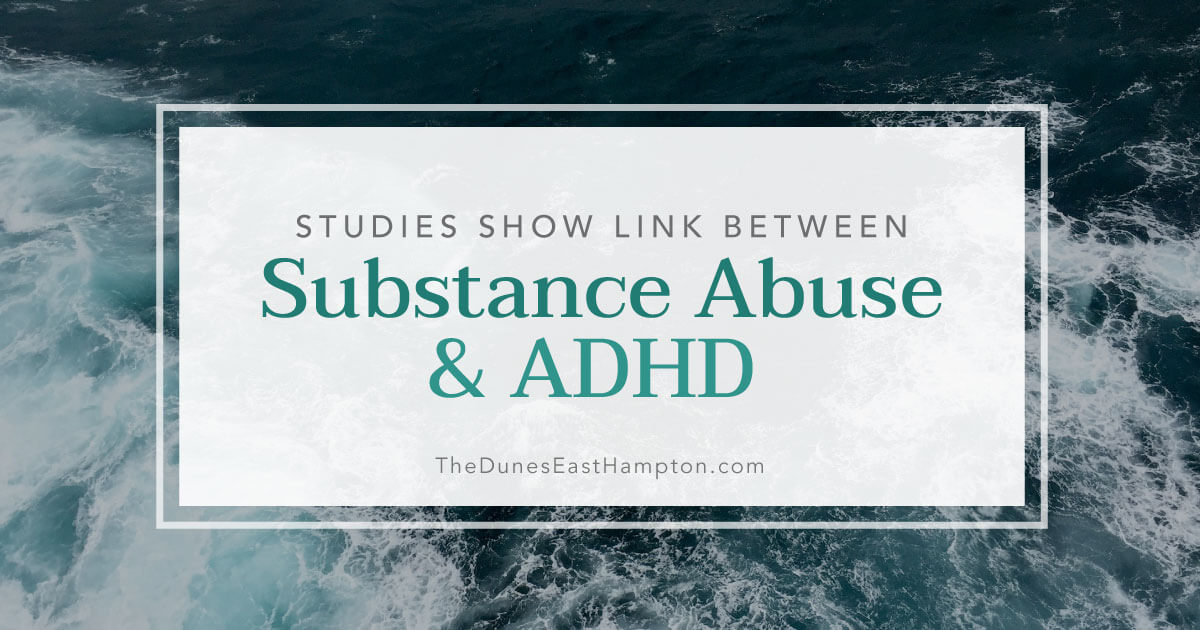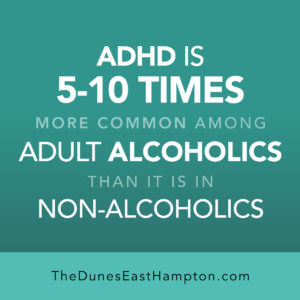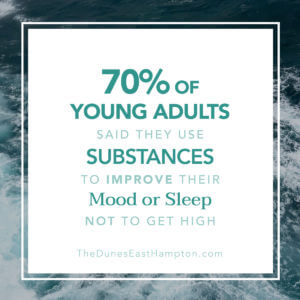
Examining the Link Between Adult ADHD and Addiction
Attention deficit/hyperactivity disorder (ADHD) is a mental health disorder, often diagnosed in children, that can lead to substance and alcohol abuse as an adult. ADHD is characterized by an inability to pay attention, difficulty filtering information coming into the brain, and inability to sit still. Careful examination of data regarding substance use and alcohol abuse in early adulthood suggests a correlation with ADHD. Understanding the possible links between adult ADHD and addiction can help you prevent the latter and live a happy, healthy life.
Studies Connecting ADHD and Alcoholism
Several studies have connected ADHD, drug abuse, and alcoholism. One survey found that more than 15% of adults with ADHD reported an alcohol or drug dependency in the previous year. This is almost triple the rate of adults without ADHD. One study followed a group of children with diagnosed ADHD and a control group of children for eight years. This investigation discovered that at an average age of 14.9 years old, 40% of the adolescents with ADHD had consumed alcohol, compared to only 22% of the control children. The study connects ADHD with early onset alcohol use and abuse.
Yet, another study of young adults at an average age of 25 found no difference in alcohol use between people with ADHD and those without. Thus, the results of the studies are mixed. However, researchers argue that alcohol use is typical behavior for the young adult age group, and therefore only has limited power to predict alcoholism later in life. Alcohol use during adolescence is a much stronger predictor of alcohol issues.
Higher rates of alcohol use disorders, such as abuse and dependency, are clear links between adult ADHD and addiction. Researchers have investigated alcohol use disorders in people with and without ADHD, and found that in young adults. About 44% with ADHD had alcohol-related disorders, compared with only 27% of control participants. More recent studies have shown that ADHD is five to ten times more common among adult alcoholics than it is in people who are not alcoholics. The link between adult ADHD and addiction doesn’t end with alcoholism – studies also show a link with drug abuse.
Studies Connecting ADHD and Drug Abuse
Studies have linked adult ADHD and addiction with marijuana and other recreational drug use. People with ADHD typically experience drug and alcohol problems at earlier ages than those without ADHD. A nationwide study by the University of Pittsburgh Schools of the Health Sciences in 2013 showed that teenagers with ADHD are significantly more likely to smoke cigarettes and have substance abuse problems than those without ADHD. The study found that 35% of teens with ADHD reported using one or more substances by the age of 15, compared to 20% of teens without a history of ADHD.
ADHD Medication as a Gateway Drug?
ADHD diagnoses often lead to pharmaceutical prescriptions to treat symptoms. These prescription medications include stimulants such as amphetamines and dextroamphetamines, as well as non-stimulants and antidepressants. Common ADHD medications include Adderall, Dexedrine, Focalin, and Ritalin.
Prescription drugs have a positive effect on children with ADHD, helping them focus and be more productive. They help the brain send and receive signals so the child can think more clearly and control impulses. The use of stimulants to treat ADHD has led to a misconception that this creates a drug dependency early on, which ultimately transforms into drug abuse or alcoholism. While ADHD drugs can be addictive due to the presence of dopamine, the risk of addiction in children and adults is low when taken as prescribed.
Self-medication with substances is common among young adults with undiagnosed ADHD and those with an ADHD diagnoses who never sought treatment. Adults with diagnosed ADHD who do seek treatment for their symptoms are less likely to abuse drugs and alcohol than their untreated counterparts. This debunks the myth that ADHD medication is a gateway drug for substance abuse. It also points to a reason for the connection between ADHD and addiction.
Why Does ADHD Lead to Addiction?
People with ADHD are more likely to have behavioral problems and be impulsive. Both of these character traits are precursors for drug and alcohol abuse, according to researchers. Children with ADHD may also be less successful in school and social situations, leading to feelings of depression and anxiety. Fewer children with ADHD graduate from high school and college than those without. Environmental and social conditions relating to ADHD may all contribute to the desire to turn to drugs and alcohol to escape from reality.
On top of trying to escape from reality, adolescents with undiagnosed or untreated ADHD may turn to drugs and alcohol to treat their symptoms. A Harvard Medical School study of substance abuse showed that 70% of young adults said they use substances to improve their mood or sleep – not to get high. This is self-medication, a strong precursor to addiction. In striving to self-medicate, people with ADHD may unknowingly become addicted to drugs and/or alcohol. Genetics are another link between the two conditions – ADHD and alcoholism both run in families. Therefore, a child with ADHD who has a parent with an addiction is more likely to develop a problem.
In adulthood, ADHD can mean an increased risk for drug abuse or alcoholism during any major life change. People with ADHD tend to have trouble coping with changes such as a new job or having a child, activating a genetic vulnerability and predisposition to become addicted. All of these elements combined in people with ADHD can lead to a high risk of substance use, abuse, and alcoholism. When abuse gets to that point, the person will require substance abuse treatment from a professional rehab center.
Seek Help for a Dual Diagnosis
Despite the higher odds of an adult with ADHD becoming addicted to drugs or alcohol, there is hope for people with this condition. Preventing addiction begins at adolescence. Upon an ADHD diagnosis, receiving proper treatment and following a prescription’s directions exactly can help to avoid a child from ever turning to drugs and alcohol to self-medicate.
It can also help a child excel in school and feel more socially confident, diminishing the odds of developing dependency. Adults with diagnoses of both adult ADHD and addiction should seek professional treatment for their addictions at a treatment center that specializes in dual diagnosis treatment programs and prescription drug addiction treatment. They should also look into proTreatment must address both the symptoms of ADHD and the causes of addiction to be successful.







